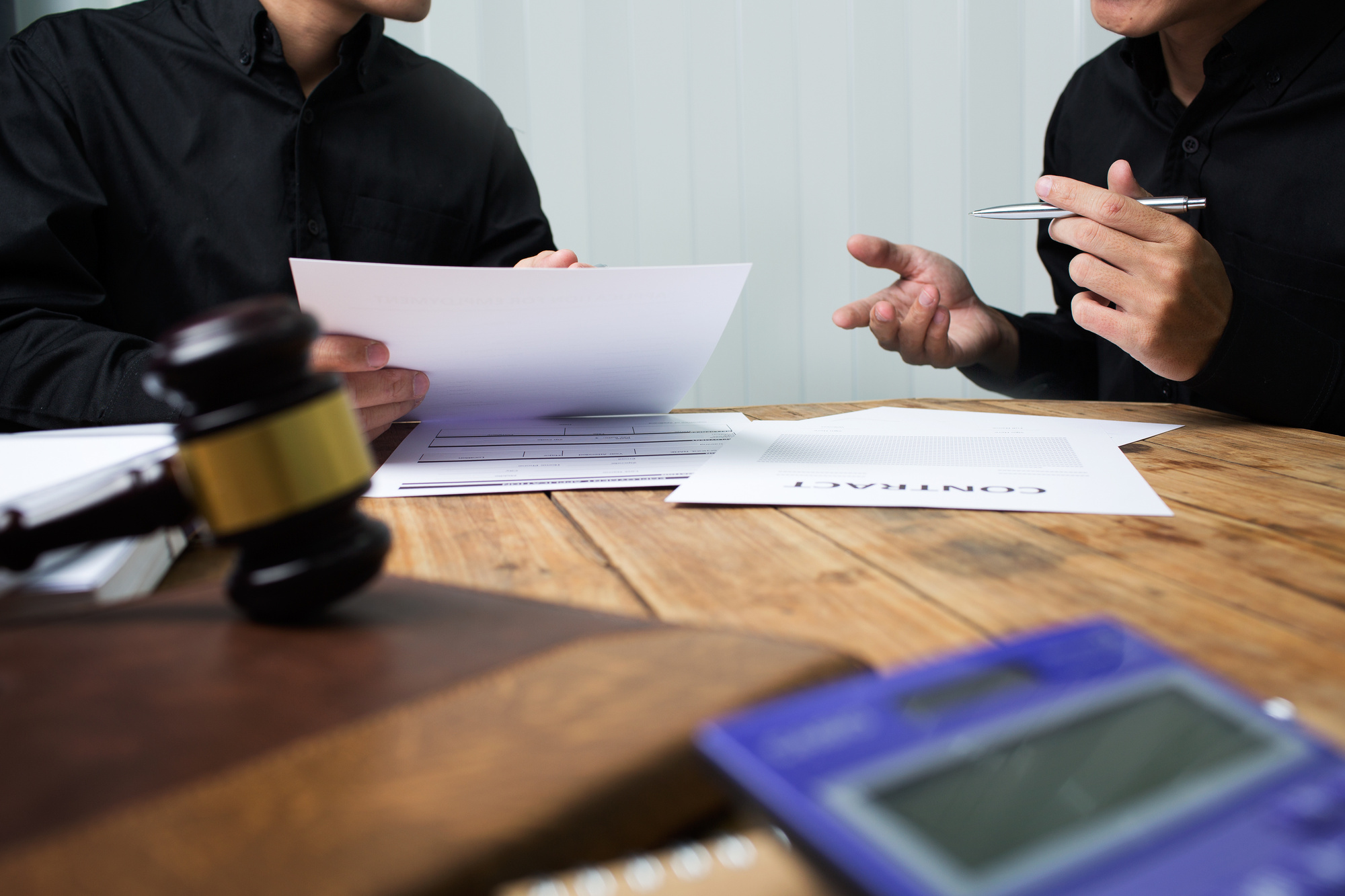Whether you were in the wrong place at the wrong time, have been falsely accused, or even if you made a poor decision, you’re now in a position where you’re facing criminal charges.
It’s hard to think clearly and rationally, but you know one thing for certain: you need a good attorney.
In this post, we’ll tell you everything you need to know about how to find a criminal defense lawyer. We know that facing possible fines, personal and professional consequences, or even a prison sentence is terrifying.
The right lawyer can ensure not only that you receive a fair trial, but also that you have the best possible chance of being found innocent.
Table of Contents
1. Investigate Their Credentials
When you’re trying to find a criminal defense lawyer, the first thing you need to do is ensure that their license is current in your state. You can confirm their credentials on the American Bar Association website.
Don’t stop there.
You should also ask how long they’ve been in business, where they went to school, and if they’re a member of any local legal associations or nationwide guilds.
Ask how they continue their education, which conferences they attend, and even if they’ve contributed to any legal journals or websites.
2. Study up on Their Trial Record
As much as we’d all love to, it’s nearly impossible to find a criminal defense attorney with a perfect trial record.
It’s not that your defense lawyer needs to have won every case. Instead, it’s that they’ve won the majority of their cases and that they have lots of experience with cases similar to your own.
Find out more about how often they’ve defended someone who was charged with the same crime you’ve been accused of.
A strong trial record also demonstrates a clear understanding of how the court system works. You don’t want to be responsible for filing your own paperwork when you’re facing criminal charges — and you certainly don’t want to risk doing it incorrectly.
3. Speak to past Clients
When interviewing a potential private defense attorney, you need to take the time to speak to their references.
When you speak to these references (and if possible, do so over the phone) ask how quickly their calls or emails were answered. Ask about how the attorney behaved in court. Were they on time? Professional? Able to calm their nerves and clearly explain to them what was going on?
Did the client feel as though they were a priority? Did they feel confident when working with the attorney?
Only a direct conversation will be able to give you the answers to these essential questions.
4. Ensure They Have the Right Connections
Sometimes, winning a case is all about having the right connections on your side.
A good lawyer should have a strong network of colleagues in the legal profession so that they can ask for additional opinions on your case and the routes they’ll use to defend you.
They also need to know mental health professionals, medical experts, and other figures of authority that they could call on to evaluate you, or even serve as a witness.
You also need to get to know who else might be working on your case. You want to be certain that your attorney isn’t going to push the majority of your casework onto someone else in their office — someone who isn’t really qualified to defend you.
5. Evaluate Their Communication Style
Depending on the length of your trial, you could be working with your lawyer for several months.
You need to know that you can get along with your lawyer and that you’re on the same page when it comes to your style of communication.
Most importantly?
Your lawyer has to be able to convince a jury that you’re innocent or convince a judge to give you a lighter sentence. If they can’t even convince you to work with them?
The likelihood of you getting the outcome you want in court is slim.
Schedule a consultation (usually, a lawyer provides this for free) and ask them some questions about their experience and your specific case.
Pay close attention to how well they explain their opinions, and if they can create a sense of trust between the two of you.
6. Ask About the Billing Structure
Especially if you’re looking at felony charges, your legal fees could easily fall in the $5,000 to $10,000 range.
Though you can’t put a price on freedom, we understand that’s not exactly a sum you can easily pay off.
In order to afford your attorney, you’ll need to be smart about your finances. You’ll also need a clear understanding of their overall fee and billing structure.
Before you make any final decisions about your representation, make sure you understand how the payment process works. Understand how and when you’ll be billed, the services you’ll be billed for, and how long you’ll have to pay it.
Be honest about your current financial situation. Some legal professionals may be willing to work with you.
Find a Criminal Defense Lawyer with These Tips
You don’t have to feel helpless just because you’ve been charged with a crime.
Start your journey to justice by taking the time to find a criminal defense lawyer with the right credentials, demeanor, and reputation to help you fight the right way.
Looking for additional legal advice? Want to learn more about how to keep both your physical and mental health strong during your trial?
Keep checking back with us to learn how to stay as stress-free as possible while your case is in court.







